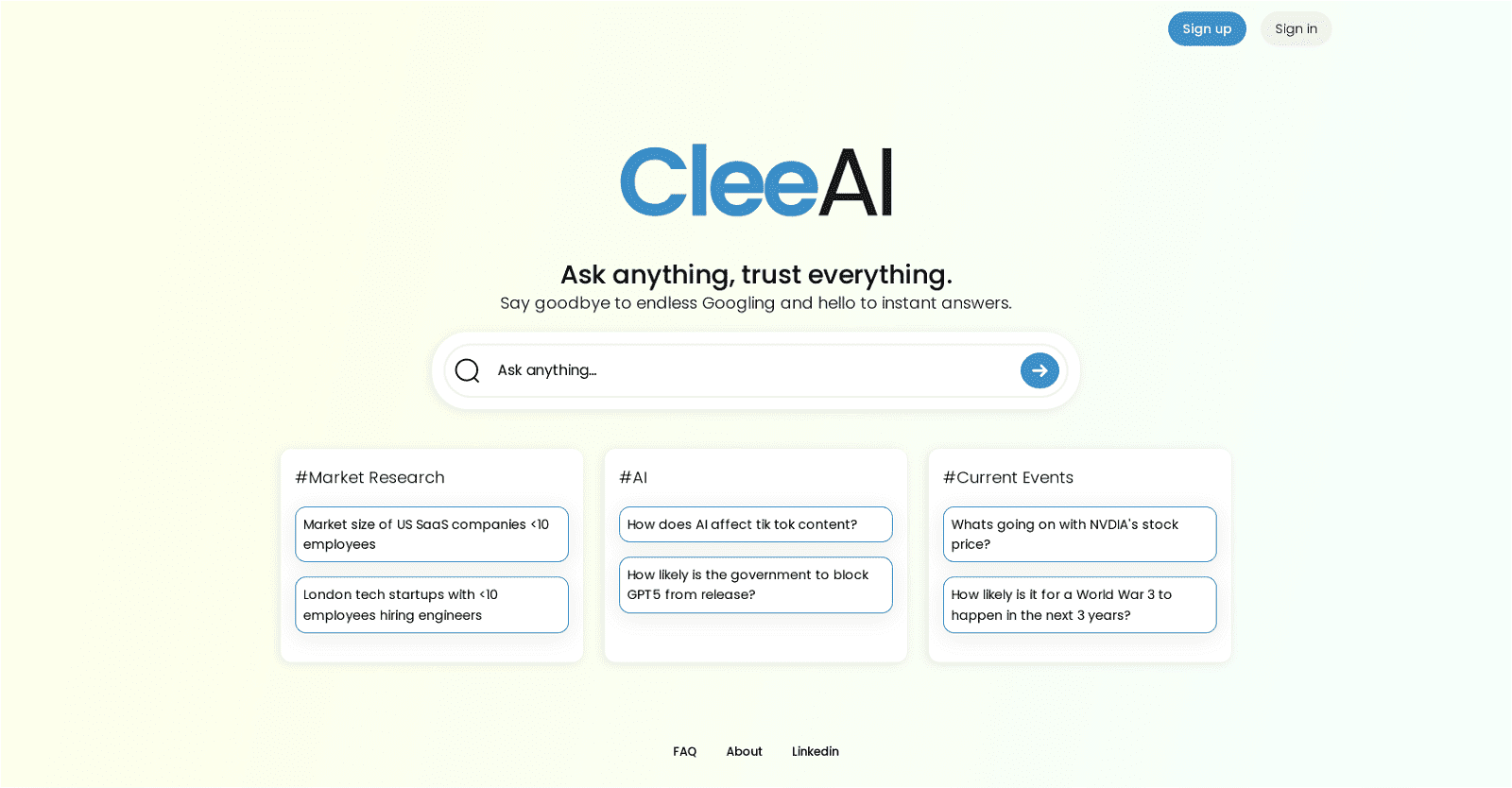CleeAI is an AI Search Engine and Assistant designed to deliver fast, accurate answers by crawling the web in real-time. It’s marketed as a tool that can significantly reduce search time for users, providing instant answers to various queries. This could range from market research and current events to questions about AI and its impact on content platforms like TikTok.
The platform emphasizes its ability to provide trusted answers from live sources, ensuring that users receive the most up-to-date information available.
It’s particularly aimed at professionals and students who need quick, reliable information without having to sift through outdated or irrelevant data.
CleeAI also offers a FAQ section for users to get swift answers about its functionality, privacy, and more, and it invites users to contact their team for feedback or assistance.
It’s positioned as a revolutionary tool where cutting-edge AI meets search, transforming access to instant, reliable information.
More Details About CleeAI
What Types of Questions Can CleeAI Answer?
CleeAI can answer a wide variety of questions across many topics, including general knowledge, current events, science, history, and more. It is particularly useful for quickly finding answers to factual questions.
How Accurate are CleeAI’s Answers?
CleeAI strives to provide accurate answers based on its training data. However, as an AI system, its responses may not always be 100% correct. Users should view CleeAI’s answers as a starting point for further research rather than as definitive facts.
How Does CleeAI Compare to Other AI Question-Answering Tools?
CleeAI differentiates itself by its focus on providing quick, concise answers and its ability to handle a wide range of question types. It also offers customization options and integration capabilities that may not be available in all competing tools.
What are the Privacy and Security Measures in Place for CleeAI?
CleeAI takes user privacy and data security seriously. The tool uses encryption and follows industry best practices to protect user information. However, users should always review the tool’s privacy policy and terms of service for the most up-to-date information.








